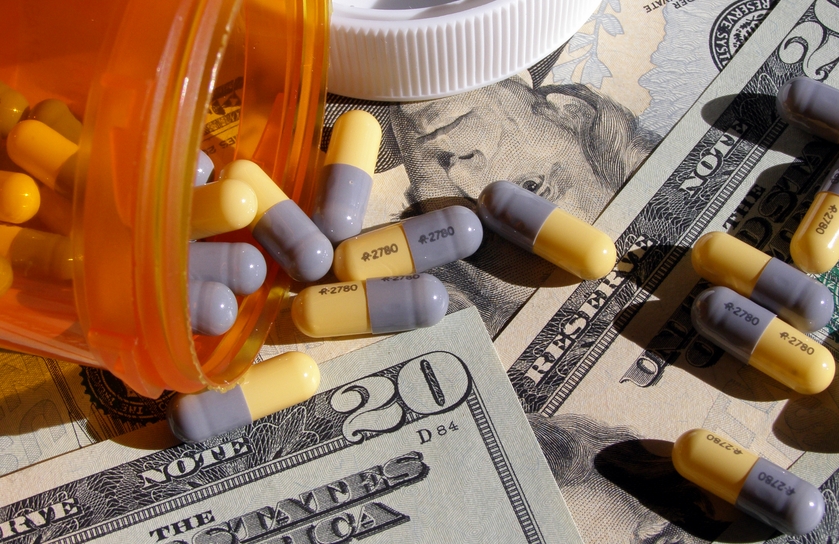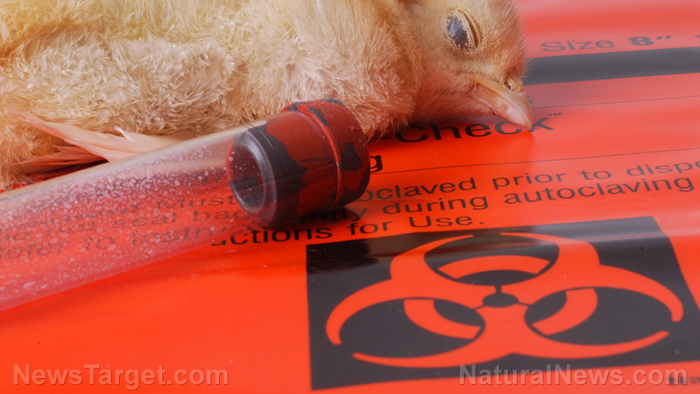RIGGED MEDICINE: Report finds nearly 60% of U.S. doctors received payments totaling over $12 billion from Big Pharma firms between 2013 and 2022
04/05/2024 / By Ava Grace

A report has found that nearly six in 10 doctors in the United States received payments from Big Pharma firms between 2013 and 2022.
This is according to a study done by researchers at Pennsylvania State University, which found that around 57 percent of doctors collectively received approximately $12.1 billion from medical device manufacturers and pharmaceutical drug makers between 2013 and 2022.
“Despite evidence that financial conflicts of interest may influence physician prescribing and may damage patients’ trust in medical professionals, such payments remain pervasive,” the researchers wrote.
The researchers used data from the platform Open Payments – a publicly accessible national database where drug and medical device companies disclose payments and gifts made to physicians – for their study. They found that from August 2013 to August 2022, American drug and device manufacturers made more than 85 million individual payments to 826,313 of the more than 1.4 million eligible doctors in the United States.
The payments that the researchers included in their study were both in cash and non-cash equivalents. Most went to consulting services and non-consulting fees, such as payments for serving as a speaker. Physicians were also showered with food and beverages, travel and lodging, entertainment, education, grants, charitable contributions, honoraria and other kinds of non-cash gifts. (Related: Some doctors are now charging patients for the time it takes them to do paperwork.)
Orthopedic surgeons received largest total sum
Thirty-nine medical specialties were analyzed in the study and the researchers found that orthopedic surgeons received the largest total sum of payments, at $1.36 billion. After orthopedic surgeons, the specialties that received the largest total sum of payments were neurologists and psychiatrists, who received $1.32 billion, and cardiologists, who received $1.29 billion.
We are building the infrastructure of human freedom and empowering people to be informed, healthy and aware. Explore our decentralized, peer-to-peer, uncensorable Brighteon.io free speech platform here. Learn about our free, downloadable generative AI tools at Brighteon.AI. Every purchase at HealthRangerStore.com helps fund our efforts to build and share more tools for empowering humanity with knowledge and abundance.
Although the median payment to doctors was $48, payments to the top 0.1 percent of doctors were far higher and differed depending on specialty. The average amount paid to this top class of physician was $4,826,944 for orthopedic surgeons, $3,197,675 for cardiologists and $2,588,819 for neurologists and psychiatrists.
Other major earning specialties include hematology and oncology ($825 million), internal medicine ($588 million), endocrinology ($546 million), family medicine ($479 million), rheumatology, allergy and immunology ($464 million), dermatology ($462 million) and gastroenterology ($441 million). The lowest earners were pediatricians.
Twenty-five drugs and medical devices were associated with the largest payments. Roughly 94 percent of payments were associated with one or more of the 25 marketed medical products.
For drugs, the largest payments were for the blood thinners rivaroxaban – sold by Bayer under the brand name Xarelto – and apixaban – sold by Pfizer as Eliquis. Both are medicines used to prevent blood clots and stroke in people with atrial fibrillation.
They were followed by the psoriasis drug adalimumab, sold by AbbVie as Humira; and canaglifozin and empagliflozin, both used to treat Type 2 diabetes. The former is sold by Johnson & Johnson as Invokana and the latter by Eli Lilly as Jardiance.
The top medical device related to industry payment was the Da Vinci surgical system – a robotic surgical system. More than 60,000 surgeons globally are trained on the Da Vinci, and manufacturer Intuitive Surgical is on an aggressive campaign to get more surgeons to train to use it.
Head over to BadDoctors.news for more similar stories.
Watch this clip from Real America’s Voice as Dr. Pierre Kory talks about the extent of the FDA’s corruption and how Big Pharma makes it worse.
This video is from the GalacticStorm channel on Brighteon.com.
More related stories:
CONFLICT OF INTEREST: Supposedly “independent” CDC advisors received bribes from Big Pharma.
Drug approvals by regulators are often based on poor clinical data, researchers find.
PHARMA FLASHBACK: Pfizer shelled out $2.3B to settle civil and criminal charges in 2009.
Sources include:
Submit a correction >>
Tagged Under:
bad doctors, big government, Big Pharma, Bribes, conflict of interest, corruption, medical devices, orthopedic surgeons, pharmaceutical drugs, pharmaceutical fraud
This article may contain statements that reflect the opinion of the author





















